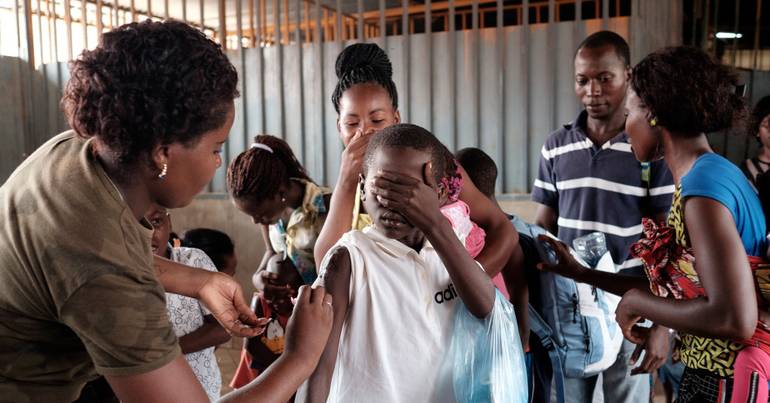

In a remarkable stride towards eradicating polio, Angola is embarking on a large-scale vaccination campaign aimed at immunizing over six million children across the nation. This significant public health initiative underscores Angola’s commitment to safeguarding its younger population from the debilitating effects of poliomyelitis. The campaign is generously supported by the Global Polio Eradication Initiative (GPEI), with backing from the World Health Organization (WHO). It marks a proactive step in fortifying the country’s health defenses and ensuring a future free from the concerns of this preventable disease.
The Angolan authorities have mobilized resources and personnel to maximize the reach and efficiency of the vaccination drive. This concerted effort not only highlights the dedication to improving public health but also reinforces the global emphasis on eradication campaigns as vital tools in combatting diseases that have long plagued humanity. Immunization campaigns such as this play a critical role in preventing outbreaks and are pivotal in the fight against infectious diseases worldwide.
Parallel to these developments in Angola, broader health discussions are unfolding in other regions. In Portugal, there is an ongoing debate surrounding decisions related to breastfeeding guidelines. The discourse has been sparked by insights from the Minister of Labor, who pointed out potential gaps and inconsistencies in policy-making. These revelations emphasize the importance of basing health policies on robust data and thoughtful analysis rather than presumptive or under-researched approaches.
Health leaders and policymakers are increasingly called to navigate the intricacies of public expectations, scientific data, and strategic governance. This balance is crucial in promoting sound health practices and sustaining public trust. As such, the emphasis remains on rigorous evaluation and informed decision-making to ensure that health policies are both effective and equitable.
Furthermore, the discussions surrounding health policy are not isolated affairs but are intricately connected to wider issues of social welfare and economic sustainability. For instance, as energy policies are deliberated upon for their environmental and economic impacts, similar attention to detail is advocated in health policy realms to meet the needs of diverse populations effectively.
Through these thoughtful policy measures and initiatives, countries are paving the way towards comprehensive health solutions that are mindful of both current challenges and future needs. This approach not only advances public health but also encourages a culture of safety and well-being, helping communities to thrive in a healthier and more secure environment. Indeed, the collaboration among international bodies, national governments, and local authorities exemplifies the power of unity and shared purpose in achieving lasting health improvements.
Source: {link}
